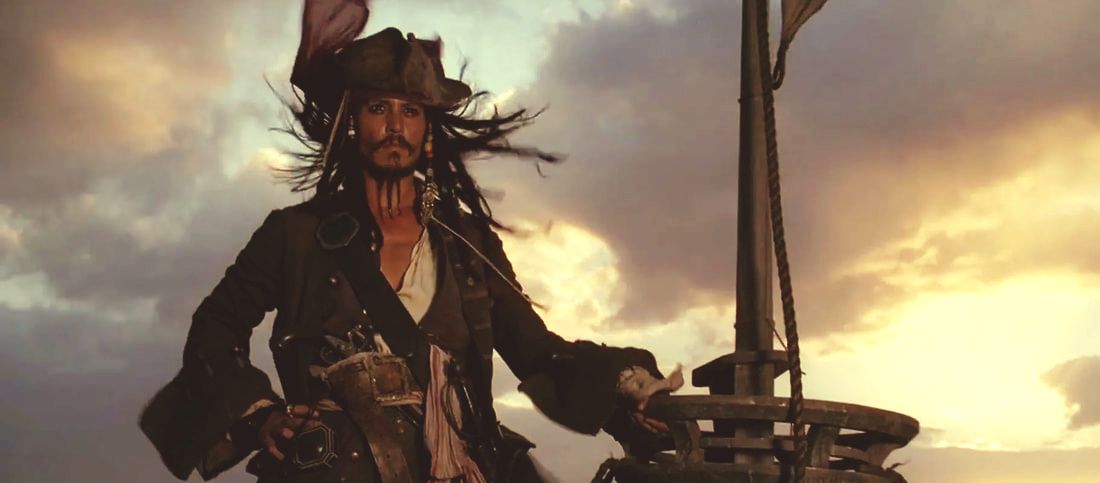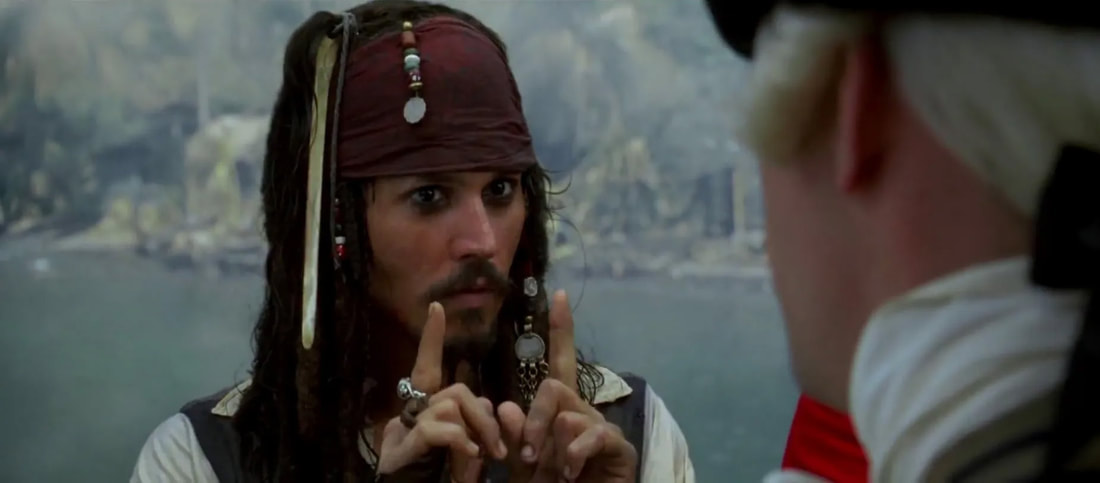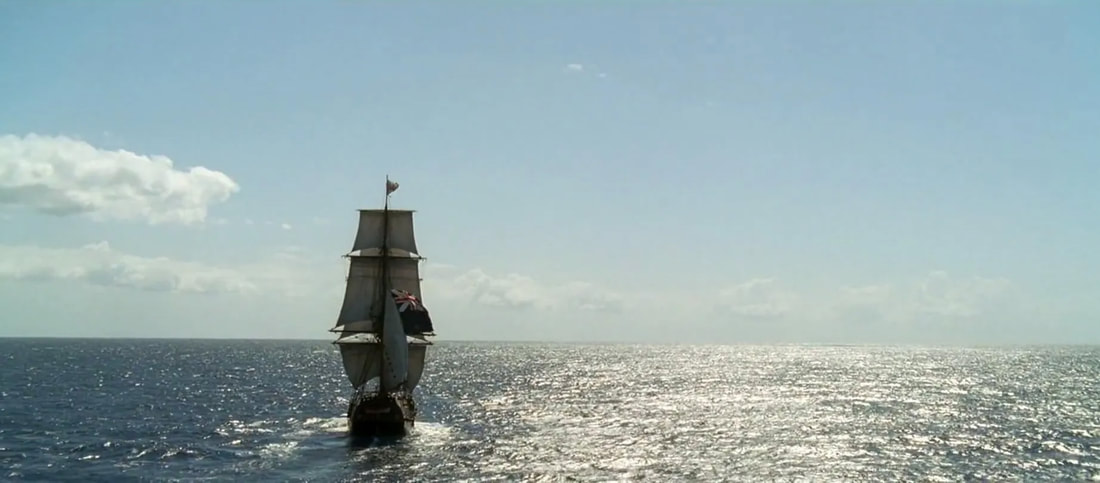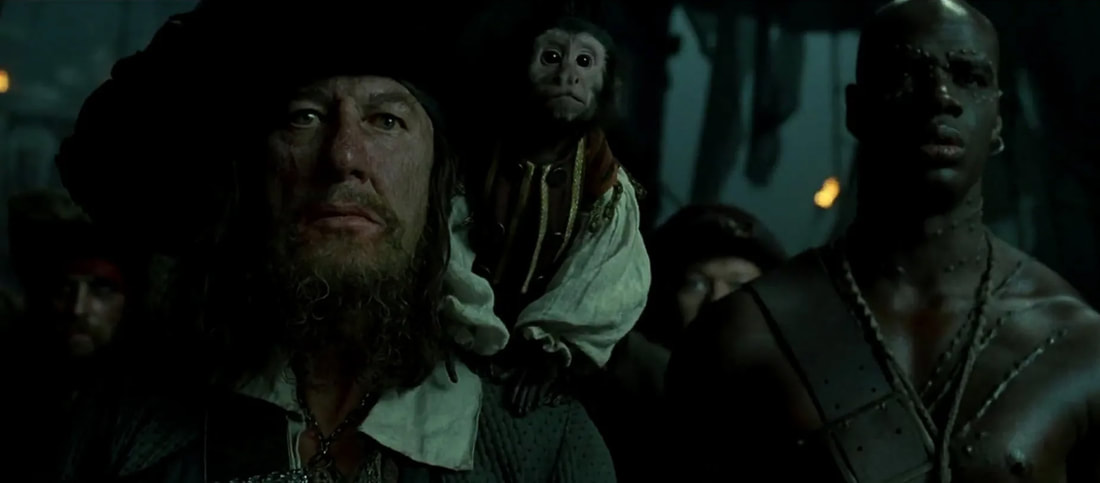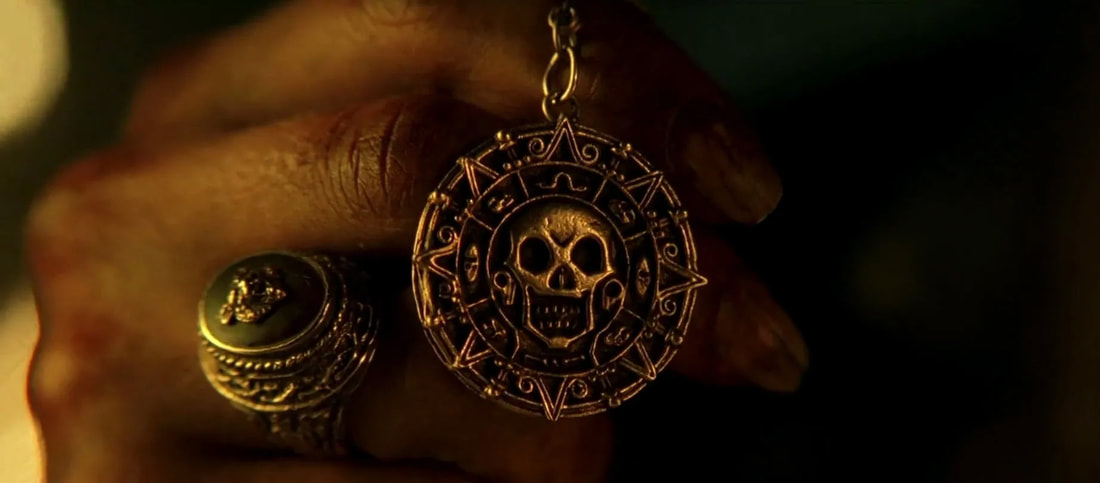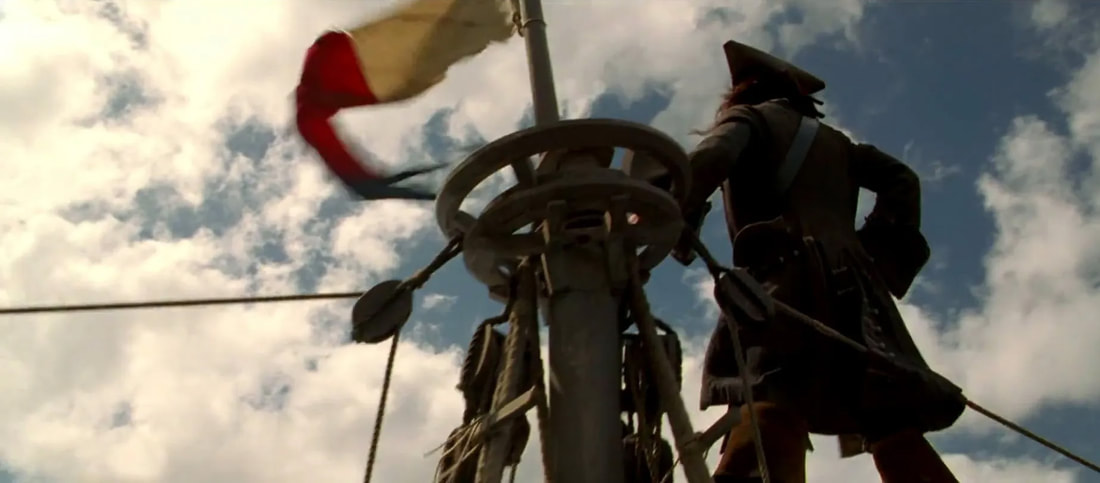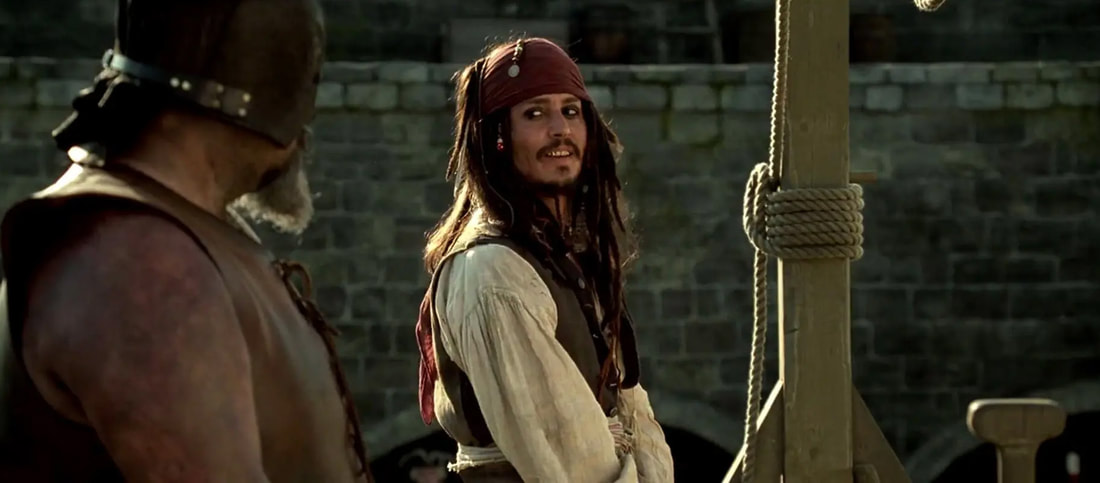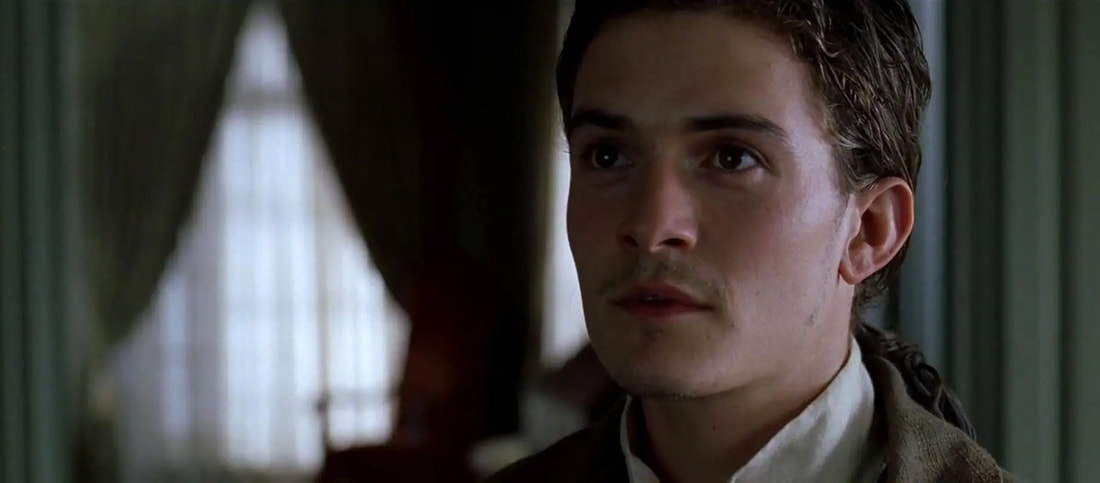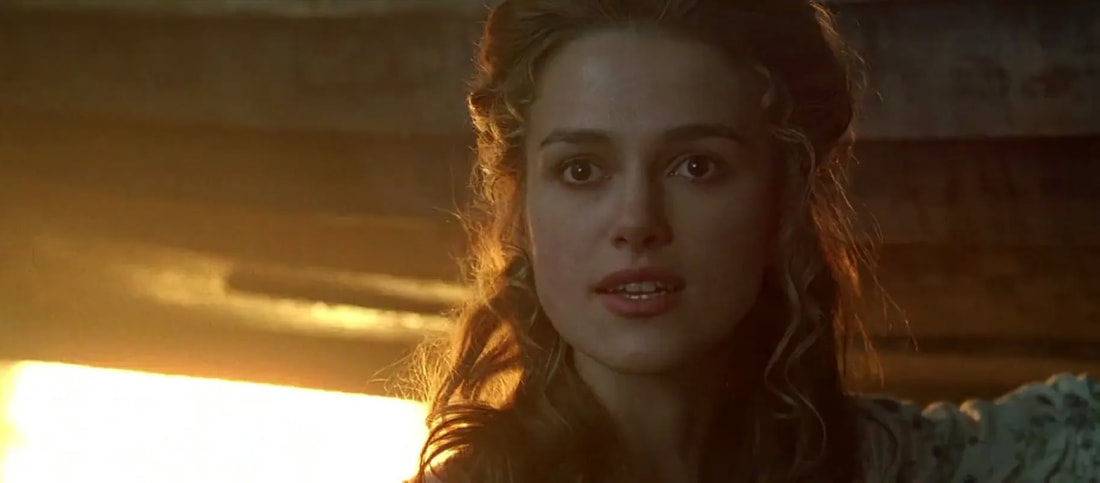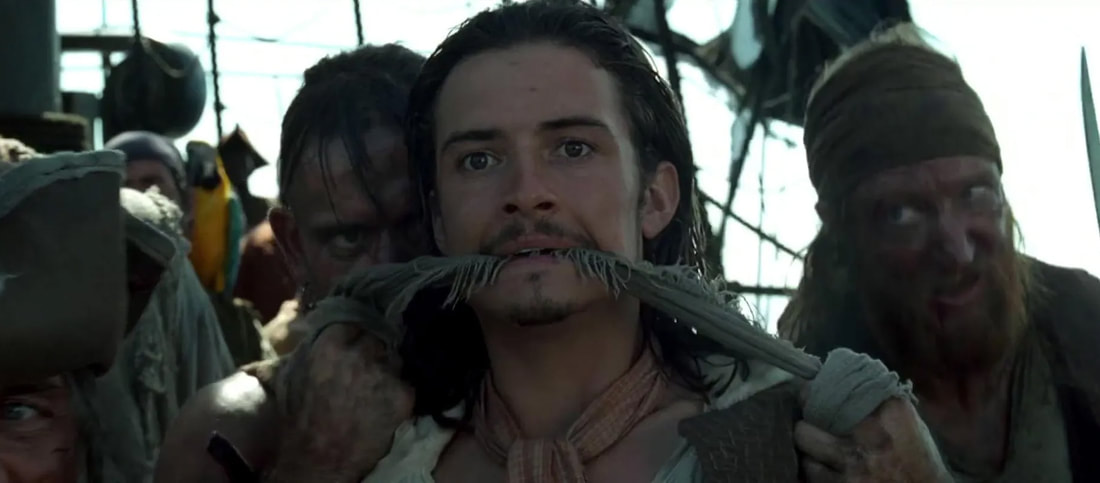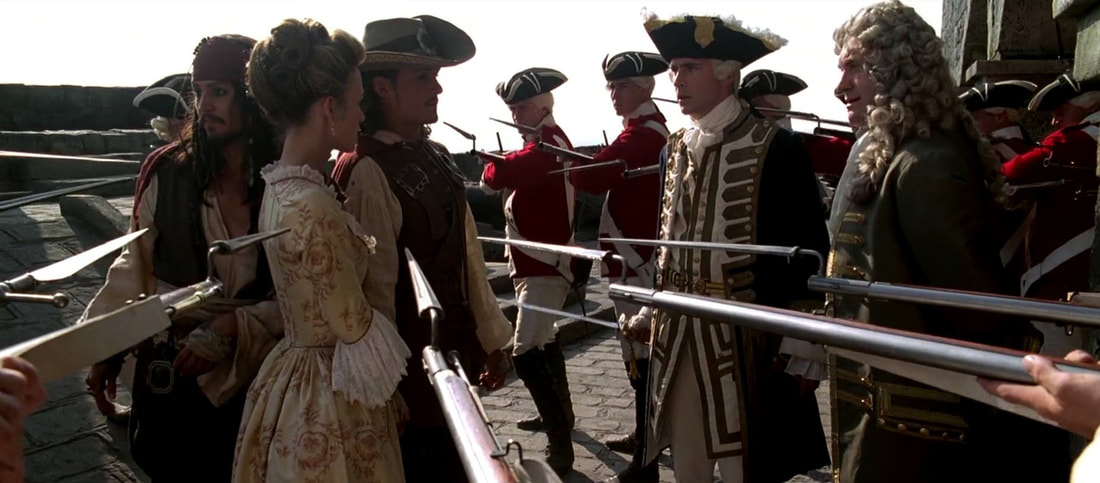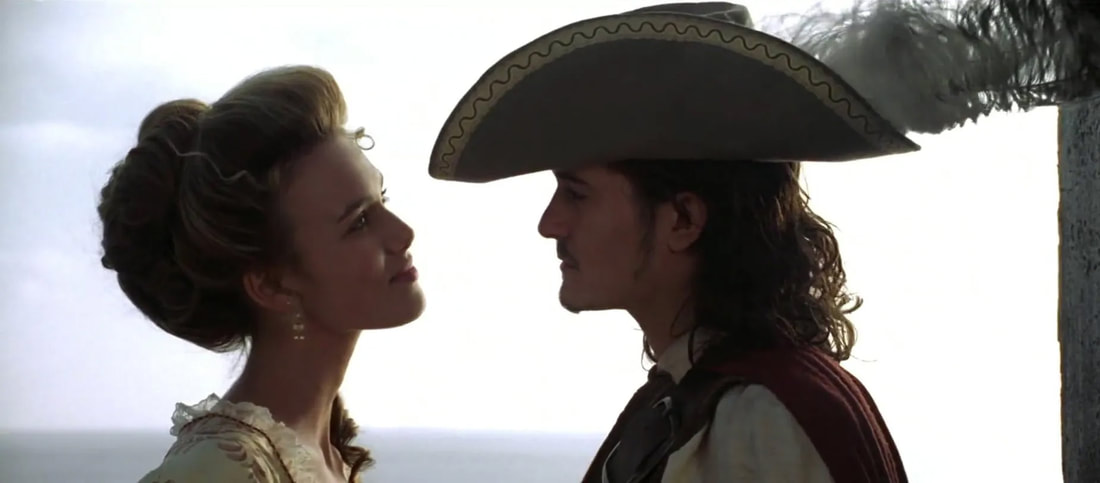|
What makes life worth living? What do you need in order to live a fulfilling life? How we answer these questions will reveal what we believe is most important. If we asked the pirate Jack Sparrow, I can guess what he’d say. Freedom. A ship of his own and the never-ending horizon before him, a world of possibilities. And, of course, a bottle of rum thrown in. We pursue the things we value. Our priorities act as our compass, to use a seafaring metaphor, guiding us to what we truly desire. The 2003 film Pirates of the Caribbean: The Curse of the Black Pearl introduces a cast of cut-throat villains and imperfect heroes, all of whom are pursuing something. Whatever questionable actions they engage in can all be explained by taking a look at their deeper motivations. On the surface, it’s a fun, swashbuckling story. The soundtrack alone is enough to make you feel like an adventurer. A lot of the film’s charm comes from the quirky Jack Sparrow, the loveable pirate with that mischievous glint in his eye. You can’t help but root for him. Sure, he’s a pirate, but he’s one of the good ones. The movie does a lot to make those who engage in piracy more sympathetic. Being a pirate seems like it can be a noble calling. A pirate is someone who lives by their own rules, who’s loyal to their captain and crew, and who braves the terrors of the open sea. It’s a tough life to be sure, and the faint of heart need not apply, but it looks better than the alternative. Captain Norrington, representing the establishment, has little freedom in his role. At the end of the film, he is forced to pronounce the death penalty over our favourite scallywag, Jack Sparrow, despite the fact that Jack assisted the Royal Navy in Captain Barbossa’s defeat and Elizabeth’s rescue. Death by hanging seems an injustice for the beloved pirate. The Disney corporation, of course, is not totally pro-piracy. I always have to smile when a Disney DVD begins with the warning “Piracy is Not a Victimless Crime”. This is the company that made billions of dollars off celebrating Jack Sparrow’s escapades, after all. I guess piracy is all fun and games until the bottom line is threatened by counterfeit DVDs. Nevertheless, perhaps the film has a point. There is actually much to admire about some of these pirate characters. They have dreams and ambitions not dissimilar to our own. Just like us law-abiding citizens, they want to find the good life and their place in this world. Unlike the traditional pirates of stories like Treasure Island, who will do anything to pursue wealth and luxury, these pirates have learned their lesson about the dangers of greed. They lived the stereotypical pirate life—and found it lacking. (Apparently the Aztec gods had something to do with that, but the point still stands.) Barbossa, captain of the Black Pearl, is the film’s big bad guy. And yet, you can understand his behaviour, and even feel sorry for him. The curse that stands upon him and his crew is a hellish business. They hunger and they thirst, but no food or drink can satisfy. Every pleasure, every small earthly delight, has been taken from him. Like the Ringwraiths of Tolkien’s imagination, Barbossa is one of the living dead. He is starving to death, unable to truly live, and yet unable to die. So it makes perfect sense why the pirates would do anything in their power to end this torment. They attack Port Royal, seeking the gold piece which will free them from their bondage. But unlike the Ringwraiths, the pirates go to seek a treasure in order to give it away. They seek to be rid of it, to return it to its origin, that accursed Aztec chest, the veritable Mount Doom of the story. The kidnapping of the lady Elizabeth Swann and the spilling of a drop of her blood is all explained by this one and, arguably positive, motivation. They want to be free. They want to live. The attack on Port Royal, the attack on Jack’s new ship, the attack on the Royal Navy, and the kidnapping of Will Turner—all these acts of piracy are meant to achieve their noble cause. Captain Jack Sparrow, or the former captain, is not under the influence of the curse, at least at first. Yet he too has arguably good motivations for his actions. He wants to be captain of his own destiny, to be free. He wants to live in the way he so chooses, without restraints. This is perhaps the quality which audiences, myself included, most love about our Jack. It’s a higher pursuit than Barbossa’s longing for bodily pleasures. At some level we all want Jack’s freedom too. We want to go where the adventure takes us, to live our lives to the fullest. So when Jack finds himself abandoned at the beginning of the film, having been mutinied and marooned, left to die on a deserted island, his crew and his ship stolen from him, you can imagine his frustration. His quest to reclaim his freedom takes many turns. In one of his first scenes, Jack briefly holds Elizabeth hostage, using her as a distraction to cover his escape. And we in the audience cheer on his efforts to flee the king's men. It seems wrong for Jack to be imprisoned, especially after saving Elizabeth’s life. Jack’s many deceptions, his playing of all sides in the conflict between the navy, the pirates, and Will Turner, all serve to bring Jack one step closer to reclaiming his ship and ousting Barbossa. He speaks of the Black Pearl as the symbol of his freedom. It is not just a ship. It represents the full life he so much desires to live. Jack is never completely honest with Will Turner, never telling him the whole story about Jack’s past, or Will’s past, or how he plans to defeat Barbossa. He seems to treat Will more as a bargaining chip rather than a partner. But audiences are more than willing to forgive Jack for that. Jack’s maneuvering comes incredibly close to giving him that freedom in the end. Unfortunately for him, he ends up in a noose at the end of the movie. But luckily, Will Turner steps into the gap. Will is an interesting fellow. Barbossa’s desire for pleasure and Jack’s desire for freedom are not wholly alien to Will. Both are important elements of a fulfilling life. Will certainly wants the freedom to be with his sweetheart, Elizabeth Swann. But more than freedom, his love for Elizabeth is his primary motivation. All else is secondary. When Jack hides inside Will’s blacksmith shop, fully intending to leave without harming Will, it’s Will who takes up a sword to start a fight. Why? Out of love for Elizabeth, whom Jack held hostage earlier that day. When Will comes to spring Jack the pirate from prison, it’s not for love of piracy or criminality. He does it to enlist Jack’s help in rescuing Elizabeth from Barbossa’s men. If Will ever engages in piracy, such as commandeering a ship of His Majesty’s Navy, it is only out of love for his dear lady, Elizabeth. And this is where it gets interesting. When Will comes forward to Barbossa, explaining his identity as the only one who can break the curse, and gives himself up in exchange for Elizabeth, something profound takes place. He does something Barbossa and Jack could never do. In his act of loving sacrifice, Will gives up all other pursuits. He repudiates Barbossa’s pursuit of pleasure and Jack’s desire for freedom. In handing himself over to the pirates, Will is giving up his pleasures, his freedom, his life—everything, except his deepest love. While enjoying life is certainly a good thing, as is living a life of freedom rather than bondage, Will Turner finds something far better. He finds a higher calling, the calling to give up his freedom and his life. He willingly constrains himself, letting himself be bound with ropes and led to the slaughter, all out of love. When Jack asks earlier what Will would do for Elizabeth, he instantly replies, “I’d die for her!” It’s hard to imagine Jack saying the same thing in this film. If you were wondering, is this going to be another one of my articles where I end up saying that love is the strongest thing in the universe, then I can only unashamedly admit that, yes, yes it is. But the reason I keep coming back to this fact is because it’s true. Love is a higher calling than all others. Elizabeth’s love for Will grows throughout the film, and by the end she puts her love for him above everything else. As soldiers surround Will and Jack with loaded rifles, ready to shoot, Elizabeth steps forward, coming between the bayonets and her beloved Will Turner. Her action, which saves Will’s life, echoes Will’s original act of self-sacrifice. Barbossa and Jack want good things. And they want to live life to the fullest. But the question this film points to is this: Can you really have a fulfilling life without love? I love Jack Sparrow for his whimsy, tenacity, and independent spirit. He makes the film what it is. But I can’t say his life is as meaningful as it could be. Jack’s compass is a good illustration of his outlook. The compass doesn’t point north. Rather, it points to his next desire, the next thing he can grab, free for the taking. But while he’s off on his adventures, taking all he can and giving nothing back, I wonder if he realizes what he’s missing.
All of us are trying to find our place in this world, our purpose. And while I believe we all have an individual purpose, unique to our gifts and situation, there’s also a purpose in which all of us share. We are meant to love one another. If we achieve everything else, and don’t have love, we have nothing. And the inverse is also true. If we lose everything, but hold on to love, then nothing has been truly lost.
Comments
|
David Raphael HilderJoin the conversation as we explore the best there is in fantasy, sci-fi, adventure, and of course, the classics Archives
December 2020
Categories
All
|

